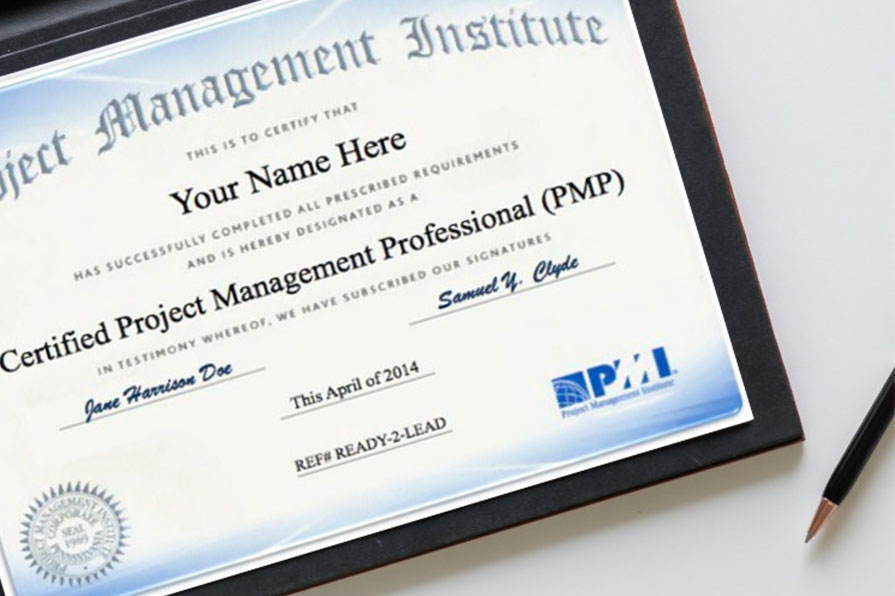In this article, you will be able to compare the five most popular certifications on the market: PMP, CAPM, PRINCE2, SCRUM MASTER and ACP certifications. This will allow you to make an informed choice to boost your career.
Project Manager, a profession in constant evolution
A project must always be well managed. The project must be orchestrated by an experienced person, but also competent to ensure that the deliverables are ready on time and on budget, to control the resources and to achieve the objectives of the client.
Over the last few decades, the profession of project management has developed and refined: today, it is not only projects in computer science and information technology that require management specialists.
The project management profession has expanded to all areas.
Along with the development of the business, certifications, but also project management methods, have emerged to recognize the skills of managers.
Certifications that make the difference in a career in project management
In general, the project management certifications attest that the professional dominates the processes and is able to manage a team, among others, to fulfill the mandate entrusted to him.
But getting certified requires a lot of effort, study, and sometimes even years of experience. Moreover, obtaining a certification can be expensive.
When you decide to take steps to get certified in project management, you must make the best choice for your career, putting your efforts and your energy in the right place.
First of all, be aware that be certified, no matter the circumstances, has significant benefits. Here are a few:
- Be recognized as an authority in project management;
- Improve your skills and knowledge on project management;
- Know best practices and internationally recognized knowledge;
- Increase your employability potential;
- Develop your professional network.
Research shows that obtaining certification increases the salary of a project manager by about 23%.
All the certifications presented and proposed are recognized worldwide. That’s why exams and training manuals are, for the most part, in English.
Certifications in waterfall project management
If you work in a traditional project management environment (also known as the Waterfall environment), you can choose certifications accredited by the PMI (PMP, CAPM) or by Axelos (PRINCE2).
PMP Certification (Project Management Professional)
Certainly the PMP – Project Management Professional certification is one of the most recognized in the project management job market.
Provided by the Project Management Institute (PMI), the PMP certification is based on the PMBOK, the Project Management Body of Knowledge.
In addition to being conditional on the success of an exam, which assesses the participant’s knowledge of the PMBOK, the PMP certification is first and foremost for people who already have experience in project management.
The PMP certification is first and foremost for people who already have experience in project management.
To be eligible for a PMP certification, the practitioner must have:
- Secondary degree (high school diploma associate’s degree or the global equivalent)
- 7,500 hours leading and directing projects
- 35 hours of project management education
OR
- Four-year degree
- 4,500 hours leading and directing projects
- 35 hours of project management education
CAPM Certification (Certified Associate in Project Management)
Also managed by the PMI, the CAPM certification is aimed at a clientele who starts in project management, but also to students who wish to gain more experience.
Indeed, the only eligibility criteria for this certification are:
- Secondary diploma (High school diploma / global equivalent)
- 1,500 hours of professional experience on a project team
OR
- Secondary diploma (High school diploma / global equivalent)
- 23 contact hours of formal education
The CAPM certification is a great springboard for those who would like, during their career, to obtain the PMP certification: after three years of CAPM certification, you are eligible for the PMP certification.
The CAPM certification is a great springboard for those who would like, during their career, to obtain the PMP certification
PRINCE2 certification (PRojects IN Controlled Environment)
PRINCE2 certification is widespread in Europe. In addition it is a project management method.
PRINCE2 certification is widespread in Europe. In addition it is a project management method. This certification aims to apprehend, manage and complete any project while focusing on three important pillars, common to all projects: organization, management and control.
PRINCE2 is a more used method in Europe, but becoming more and more popular in America
The PRINCE2 methodology is based on seven guiding principles to follow, seven project management themes and seven processes that detail the activities to deliver the project.
PRINCE2 certification can be obtained if you have a good knowledge and mastery of the method taught; does not necessarily take into account the general skills and knowledge of project management.
There are four levels for PRINCE2 certification: Foundation, Practitioner, Agile Foundation and Agile Practitioner.
CERTIFICATIONS FOR THE MANAGEMENT OF AGILE PROJECTS
Agile is a project management practice that relies, to a large extent, on good collaboration with the customer and all the resources involved.
If you want to work in an IT project or software development, you have to think seriously about becoming a Scrum Master..
Scrum Master Certification
The Scrum method consists, among other things, in a way of organizing the development of complex products by cutting the project into several small projects. This method is mainly used for the development of software and IT tools, unlike other certifications that also cover the management of projects in other areas.
The Scrum Master makes sure to adopt the Scrum method in the management of a project. It is also responsible for interactions between the various stakeholders in the project.
Three organizations can deliver the Scrum Master: EXIN with Agile Scrum Master (ASM), Scrum Alliance certification with Certified Scrum Master (CSM) and Scrum.org certification with the Professional Scrum Master (PSM) certification.
ASM certification is the easiest and cheapest of all certifications. You must have at least 65% of the correct questions in 40-question exam of 60 minutes.
To be CSM certified, you must participate in two-day training with a Scrum Alliance accredited instructor and pass a test at the end of the training.
To be PSM certified, you must have at least 75% of the correct questions in a 80-question exam of 60 minutes duration.
To learn more about ASM certification
ACP Certification (Agile Certified Practitioner)
ACP certification was created by PMI in 2010 in response to market demand by agile managers. In addition to completing a 120 hour and 3-hour exam, the individual must also demonstrate a 1500-hour experience as a project manager in mode agile.
To find out more about ACP certification
This is a good overview of the certifications available, even if there are others. The goal is to allow you to see more clearly and make the choice that seems best for the advancement of your career.
Stay tuned because I will give more details on each of these certifications in my next posts.
Did you like it?
share it Didn’t you like it?
comment or leave your thoughts to improve it

Download your FREE ebook 'HOW TO BE A GOOD PROJECT MANAGER'
Best advices from 30 TOP influencers in project management

